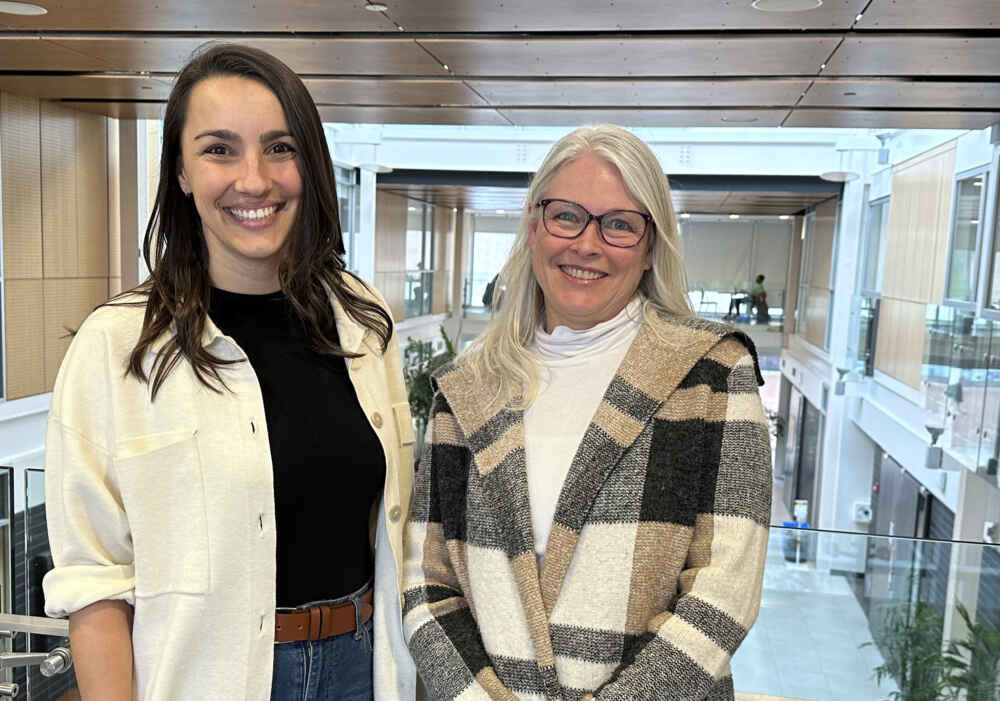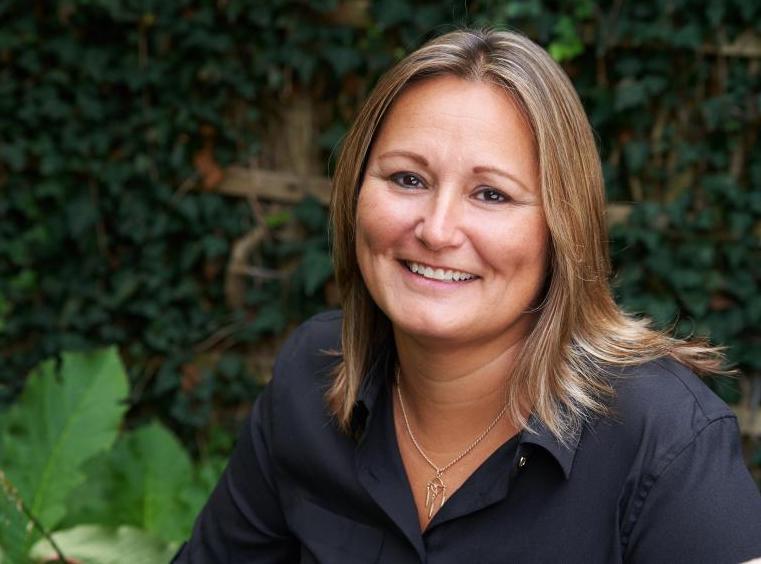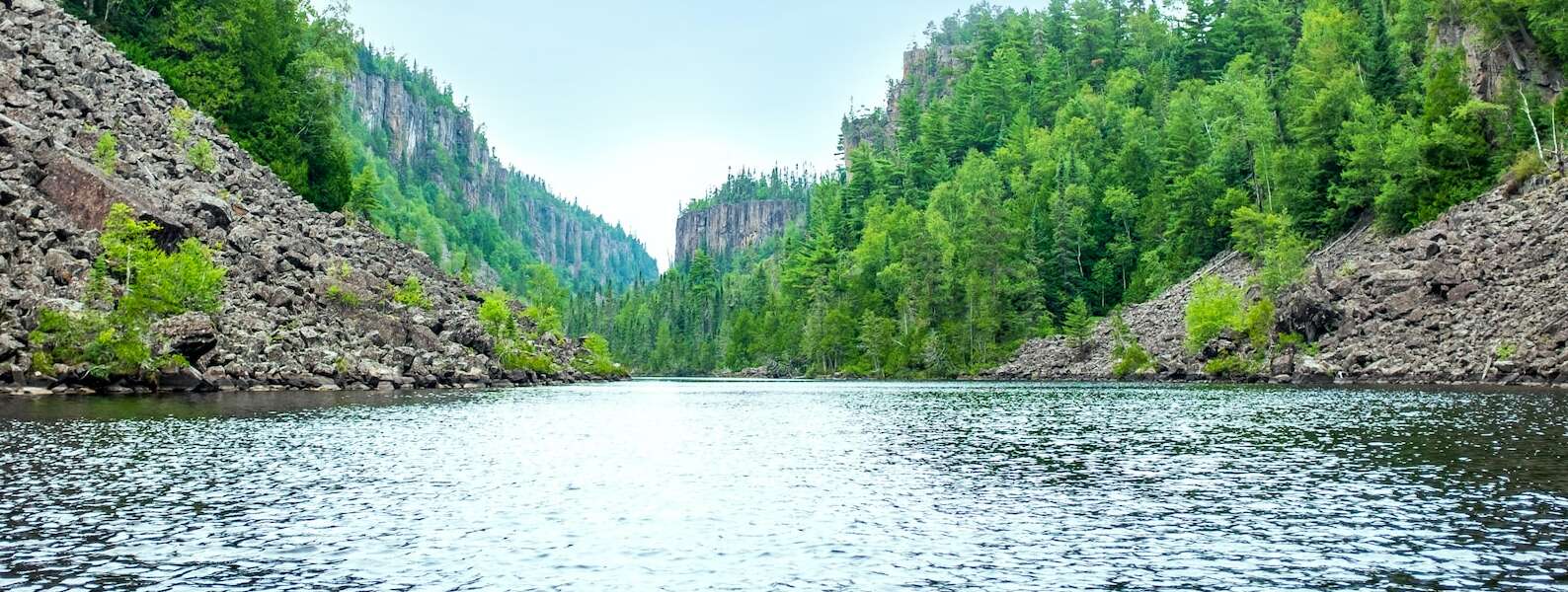To restore and protect vulnerable freshwater systems in North America, start by interweaving Indigenous and Western values, worldviews and knowledge systems.
So says a comprehensive report by University of Guelph researchers released last month by the Global Commission on the Economics of Water (GCEW) urging collaboration and braiding of viewpoints in looking after threatened water systems.

“Freshwater ecosystems are being degraded around the world,” said Dr. Andrea Bradford, a water resources engineering professor in the School of Engineering. Beyond academic expertise alone, she said, protecting those systems requires Indigenous knowledge and voices.
“Indigenous Peoples have a lot to offer in terms of worldviews and values that would inform different academic disciplines.”
Added Samantha Mehltretter, a PhD candidate in the School of Engineering and the report’s first author: “Our purely Western lens is not working.”
The report, called “Indigenous and Western Knowledge: Bringing Diverse Understandings of Water Together in Practice,” was written by researchers in the College of Engineering and Physical Sciences, the Ontario Agricultural College and the College of Arts.
Co-authors were Dr. Sheri Longboat, (Mohawk) Six Nations of the Grand River and a professor in the School of Environmental Design and Rural Development, and Dr. Brittany Luby (Anishinaabe descent) Niisaachewan Anishinaabe Nation and a professor in the Department of History.
An opportunity to weave Indigenous and Western knowledge
Longboat said the report underlines the importance of engaging with Indigenous Peoples, including many whose land and water are directly impacted by environmental issues and land use decisions.

“There is a great opportunity now more than ever, and a greater need now more than ever, to bring all knowledge forward in ways that allow us to problem-solve for the future under climate change issues and global water insecurity,” said Longboat.
“There is also greater recognition of Indigenous rights and governance for stewardship of traditional lands and waters. We know that Indigenous knowledge coupled with Western science can strengthen policy-making and decision-making and ultimately improve water outcomes for a sustainable future.”
To compile what its authors call the most comprehensive survey of its kind, they reviewed nearly 150 earlier papers, government reports and other data sources on the interweaving of Western and Indigenous knowledge systems about freshwater ecosystems in North America.
Among its key recommendations, the document calls for greater Indigenous-Western collaboration, culturally appropriate projects, centring of Indigenous values and voices, and openness and humility in addressing shared water concerns.
The last point is especially important but has often been lacking in joint environmental projects, said Mehltretter, who completed an undergrad degree in water resources engineering at U of G in 2016.
“Taking a humble and open approach is something that is not often done, especially among academics who go in as experts,” she said. “Indigenous Peoples are experts, too. If you don’t go in with humility, you’re starting off on the wrong foot.”
Report calls for use of ‘EAUX principles‘
To bring together knowledge systems and values, the report stresses the use of “EAUX principles” (equity, access, usability, and exchange):
- Equity: honouring Indigenous sovereignty, often overlooked in shaping water projects
- Access: culturally appropriate project and data management, such as adherence to the First Nations Information Governance Centre’s Ownership, Control, Access and Possession principles
- Usability: projects that benefit Indigenous communities first
- EXchange: reciprocity in knowledge sharing and project involvement, including communication
The report says these principles should be achieved through recognition of Indigenous rights and responsibilities; relationship-building between Indigenous and settler professionals; resources and funding that value different ways of knowing; and protection of Indigenous knowledge.
To illustrate these concepts, the authors discuss examples of braiding of knowledge systems and value, including the Great Lakes Wild Rice Initiative that brings together Anishnaabe communities and government agencies in restoration initiatives for manoomin (called wild rice in English).
Manoomin restoration, including acknowledgment of the crop’s cultural and ecological importance, has been a research focus for the report authors.
Bringing together viewpoints is important for protecting water, ecosystems and biodiversity, said Bradford. It’s also important for protecting human health, including mental health, as well as for Indigenous communities reliant on water resources for their livelihoods, she said: “We need to understand the sense of loss that Indigenous Peoples feel when these relationships are harmed.”
Stressing that the report’s recommendations for collaboration go beyond merely meeting legal requirements for consultations with First Nations, Métis and Inuit communities, she said, “We all have so much to learn about how to make space for respectful dialogue.”
The report was commissioned in spring 2022 by the Global Commission on the Economics of Water, an international group convened that year. This report and related documents are available on the GCEW website.
Contact:
Dr. Andrea Bradford
abradfor@uoguelph.ca
Dr. Sheri Longboat
slongboat@uoguelph.ca
